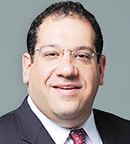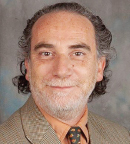The lack of an adequately trained workforce of surgical oncologists can be a major detriment in efforts to address the rising global cancer burden, according to two leading international surgical oncology societies.
In two jointly published reports,1,2 the Society of Surgical Oncology (SSO) and the European Society of Surgical Oncology (ESSO) highlight the global variations in training and make the case for a streamlined global surgical oncology curriculum of uniform standards. It is envisioned that the application of these minimum uniform standards of training will create a robust workforce of well-trained surgical oncologists to meet the growing need resulting from the rising global cancer burden.
The cancer burden is projected to rise globally, from 14.1 million new cases and 8.2 million cancer-related deaths in 2012 to 23.9 million new cases and 14.6 million cancer-related deaths in 2035. A significant proportion of the predicted global cancer burden will affect the less developed regions of the world, which by 2035 will account for 61% (14.7 million) of new cancer cases and 70% (10.3 million) of all cancer-related deaths. Nearly 80% of cancer patients will need surgical intervention at some point, and by the year 2030, it is estimated that 45 million surgical procedures will be required annually.
Collaborative Effort

Russell S. Berman, MD

Riccardo A. Audisio, MD
The efforts to develop a global curriculum were initiated when the leaders of the SSO and the ESSO convened a Joint Global Curriculum Committee co-chaired by SSO representative Russell S. Berman, MD, Chief, Division of Surgical Oncology, New York University School of Medicine [SSO Executive Council member and Past Chair of SSO’s Training Committee] and ESSO President Riccardo A. Audisio, MD, to develop a global curriculum for surgical oncology education and training. Each Society had previously developed its own curriculum, and both were utilized as a starting point for building the global curriculum.
“It is my fervent hope that this proposed global curriculum in surgical oncology will serve as a major step forward in our international efforts to address the continued dramatic rise in the global cancer burden,” said Dr. Berman.
The new global curriculum incorporates standards derived from each Society’s curriculum to provide a uniform scaffolding of minimum standards that can help tackle the significant variations in training from region to region worldwide. Such a curriculum will help to foster a cadre of well-trained surgical oncologists to meet the global need. ■
References

